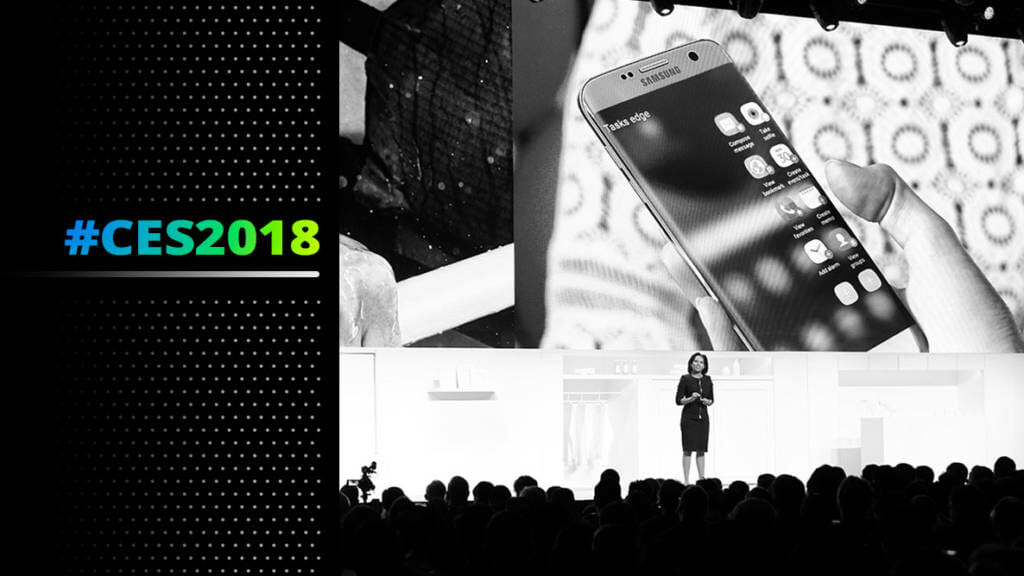There’s a lot to sift through at the Consumer Electronics Show this year, from self-driving pizza-delivery vehicles to a canceled speaking engagement by Ajit Pai, and lots and lots of AI. We’re sifting through the announcements this week to bring you the biggest ones for marketers.
Kodak Cashes In On Cryptocurrency
It was only a matter of time before blockchain made an appearance at CES, and Kodak has picked up the slack, announcing an initial coin offering for a proprietary cryptocurrency, KodakCoin. The new cryptocurrency will tie into Kodak’s photography intellectual property protection platform, KodakOne, allowing users to more easily detect unlicensed use of their photos.
But Kodak seems to be hedging its bets on its own cryptocurrency as well, as it has also started to rent out Bitcoin-mining equipment to consumers. The product, Kodak KashMiner, is a 2-year contract for an up-front payment, which will grant the consumer only half of the Bitcoin mined by the machine they rent (the other half going to Kodak).
The company was famously slow to adapt to the disruption digital cameras brought to the industry, but it certainly can’t be accused of that now.
LG: Artificial Intelligence In Everything
Riding marketers’ artificial intelligence buzz, LG announced at the Consumer Electronics Show that it was going to take a stab at incorporating AI into its own devices in the next year. The company’s approach may be surprising: rather than market incorporated AI technology to consumers, LG’s president and chief technology officer Il-pyung Park hopes to keep it behind the scenes.
“We don’t want to use AI as a marketing strategy,” he said to CNET. “You can talk about AI all day, but if the customer doesn’t get any value out of it, it becomes useless.”
At their presentation, LG promised AI incorporation with TVs, air conditioners and even washing machines. They even built AI into a home robot called CLOi, but may have embraced the “behind the scenes” approach a bit too much, as it failed to respond to any voice commands on stage.
iHeartRadio: Music Bots
The digital arm of radio platform iHeartMedia, iHeartRadio, has announced a slew of cross-platform integrations, hoping to bring the service out of the car and into every other facet of their users’ lives.
The platform’s Facebook chatbot will allow users to request station recommendations based on genre, location and popularity, and promises more functionality soon. The streaming platform also now supports Samsung’s Bixby voice recognition service, the Roku app and even Garmin’s latest GPS running watch.
All this comes in addition to partnerships with General Motors and Ford to natively incorporate the service in new vehicles, meaning that iHeartRadio might score new paying subscribers from Spotify from sheer ubiquity alone.
Rokid: Improving Augmented Reality
Augmented reality and voice control have been some of the largest buzzwords on the showroom floor, and Rokid has decided to combine them into one stylish package. Rokid Glass, not to be confused with other AR experiment Google Glass, seeks to solve the problem of interacting with smart glasses by making them voice-controlled, using a proprietary AI called Melody which they introduced last year.
Despite the similarity to Google’s admittedly unstylish offering, the Rokid Glass bears a closer resemblance to Snapchat’s Spectacles, which took off early before their artificial scarcity drove down consumer interest. Only time will tell if Rokid has figured out how to pitch AR headsets to the general consumer, but with voice control as popular as it is, consumers may bite.
Circuit City Back From The Dead
After declaring bankruptcy and closing down in 2009, Circuit City is making a resurgence starting in February, promising to relaunch as a “social-focused” e-commerce site, eventually with a physical retail presence as well.
In addition to relaunching as a retail platform, Circuit City will also partner with IBM Watson to somehow incorporate AI technology into its business model.

